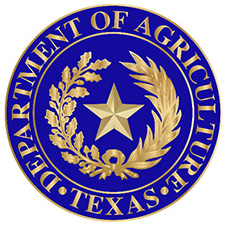Keep China out of U.S. agriculture
A week after a House committee voted to prohibit China from purchasing U.S. agricultural land, the No. 3 House Republican leader cited national security concerns in spearheading legislation to block China from acquiring U.S. agricultural companies. The restrictions were proposed at the same time business groups sought removal of U.S. tariffs on Chinese goods, remnants of the Sino-U.S. trade war.
Higher reference prices come with a cost
Since early this year, farm groups worried about rising production costs have called for higher reference prices, which are used in calculating crop subsidies, to be written into the 2023 farm bill. Congress is months away from drafting the farm bill, so there has been little discussion of the budgetary impact. But it could be significant, according to university economists who looked at a related concept: The reference-price escalator that was included in the 2018 farm law.
Are Iowa’s proposed CO2 pipelines a legitimate climate mitigation tool?
Iowa environmentalists say the plan to build three pipelines to move liquified carbon dioxide — collected from the smokestacks of ethanol refineries — to North Dakota and Illinois, where the carbon would be pumped underground, will simply prop up the fossil fuel industry and shower their agribusiness investors with tax credits.
TODAY’S QUICK HITS
Food crisis affects cotton: Africa’s cotton output was constrained for four years following the 2007/08 global spike in food prices, and there is growing concern that this year’s food shortages will be especially severe on the continent, which grows 6 percent of the world crop. (International Cotton Advisory Committee)
Gates’ purchase is okay: The North Dakota state attorney general concluded that the sale of roughly 2,100 acres of farmland to a group tied to billionaire Bill Gates, the largest private owner of U.S. farmland, complies with a state law against corporate farming. (Associated Press)
Inflation dents shopper loyalty: One-third of shoppers in Europe and North America are switching to lower-cost brands or stores that offer more affordable products in response to high inflation, says survey. (Food Dive)
Hotter, more dangerous summers: The average U.S. summer temperature is 1.7 degrees F higher than it was from 1971-2000, with heat waves that arrive earlier and more frequently. (Washington Post)
How many LGBTQ famers?: The USDA’s Census of Agriculture doesn’t track sexual orientation or gender identity but a team of analysts drilled into the data to find “a good deal of farms are run by queer farmers,” although it’s hard to quantify how many there are. (Iowa Public Radio)
ON THE CALENDAR
Tuesday
Purdue University releases monthly Ag Economy Barometer, “a sense of the agricultural economy’s health.”
USDA releases weekly Crop Progress report, 4 p.m. ET.
Wednesday
California Institute for Rural Studies releases a report, “California food production employer misconduct leads to elevated risk of Covid-19 hazards for food production workers.”
Six United Nations agencies release the annual State of Food Security and Nutrition in the World report, 10 a.m. ET.
Thursday
House Agriculture Committee holds a farm bill listening session, 1 p.m. ET, California State University, Fresno.
Sunday
School Nutrition Association holds an annual national conference, through July 12, Orlando.











